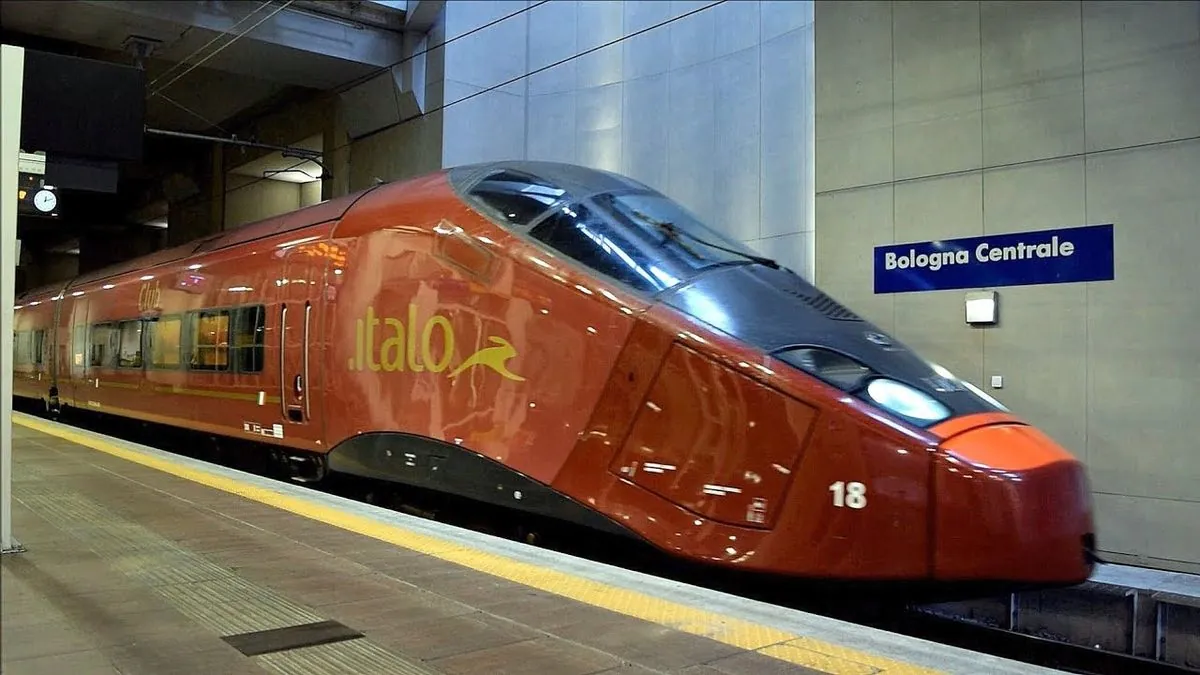In the early hours of October 4, 2024, Italian rail services experienced another significant disruption following a tragic accident near Bologna. A maintenance worker, employed by a subcontractor for Rete Ferroviaria Italiana (RFI), lost their life after being struck by a train. This incident has led to substantial delays and cancellations, affecting thousands of passengers across the country.
The accident occurred at 4:30 AM local time, resulting in the immediate suspension of rail connections between Bologna and Venice, two major hubs in Italy's extensive 24,000 km rail network. RFI, a subsidiary of Italy's state-owned railway operator Ferrovie dello Stato, promptly announced its cooperation with official investigations into the incident.
This tragedy comes on the heels of recent disruptions in Italian rail services. Just two days prior, on October 2, a technical failure paralyzed Rome's two main stations, causing severe delays across the network. Moreover, the incident brings to mind a similar accident in 2023 near Turin, where five track maintenance workers lost their lives during a nighttime operation.
By 8:00 AM on the day of the accident, RFI reported that rail traffic was gradually returning to normal. However, high-speed trains, part of Italy's "Alta Velocità" system which began operations in 1977, experienced delays of up to 80 minutes. Additionally, 14 local trains were cancelled, affecting commuters and travelers alike.
The Bologna Central Station, one of Italy's busiest with approximately 58 million annual passengers, played a crucial role in managing the disruption. The station's strategic location on the Bologna-Florence high-speed line, which includes 73.8 km of tunnels, underscores the complexity of Italy's rail infrastructure.
This incident highlights the ongoing challenges faced by Italy's railway system, which transports about 800 million passengers annually. The National Agency for Railway Safety (ANSF) is likely to play a key role in the investigation, as it regulates railway safety across the country.
"We are fully cooperating with official investigations into this tragic incident. Our thoughts are with the family of our subcontractor's employee. We are committed to ensuring the safety of all workers and passengers on our network."
As Italy continues to invest in its rail infrastructure, with significant funding pledged as part of the post-COVID recovery plan, incidents like these underscore the importance of maintaining and improving safety measures. The Italian government and railway authorities face the challenge of balancing the expansion and modernization of the network with the paramount concern of worker and passenger safety.
The resilience of Italy's rail system, which includes over 2,000 tunnels and 15,000 bridges, is continually tested by such incidents. As investigations proceed, the focus will likely be on preventing similar accidents in the future, ensuring that Italy's extensive and historic railway network, dating back to 1839, continues to serve as a vital transportation artery for the country.
